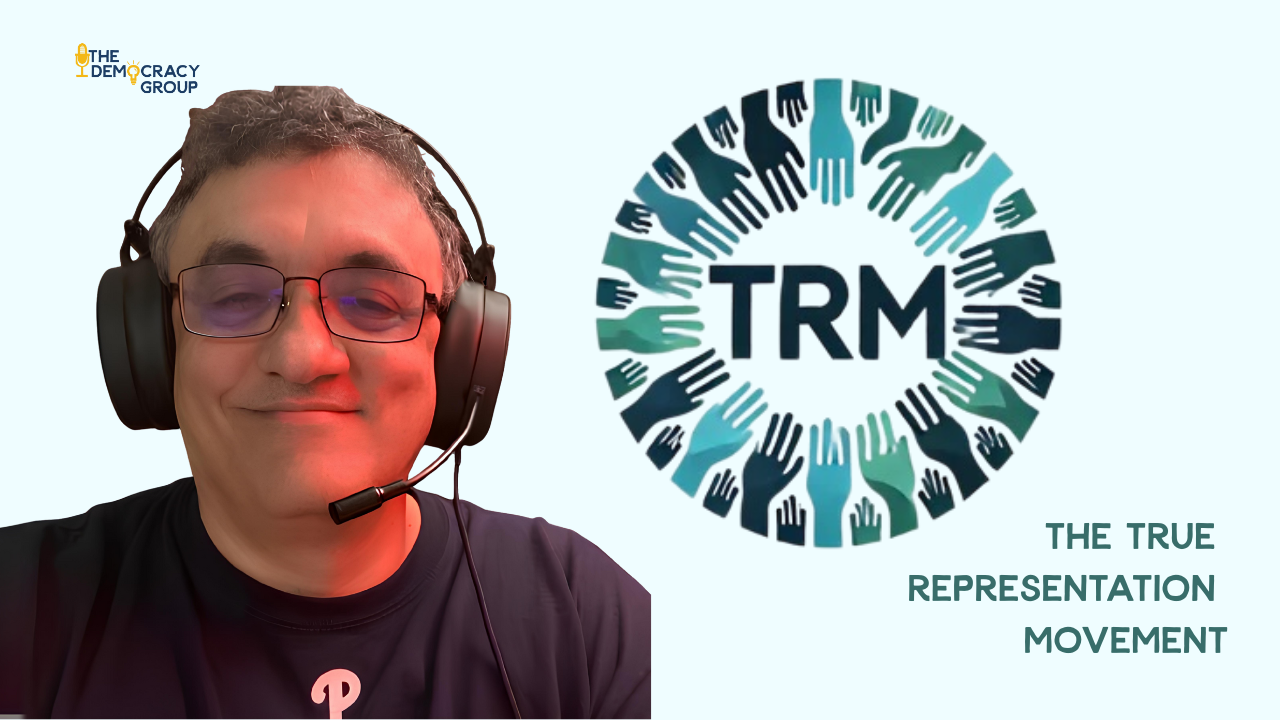
Subscribe to receive a biweekly collection of the hottest podcast episodes from the network, upcoming special events, expert features, and news from your favorite shows.
Subscribe to our NewsletterWith a growing network of podcasts and organizations that create educational content about democracy, civic engagement and civil discourse, we caught up with one of our hosts Mila Atmos about the Future Hindsight podcast, what Mila envisioned when she started the podcast, and an important conversation on the show!
Q: Tell me about Future Hindsight.
Mila: I started Future Hindsight after the 2016 election because I felt like the cure for the unhappiness of so many voters during the 2016 cycle was more civic engagement.
I had this hypothesis that if we had more people civically engaged, it would change our politics and we would be a different kind of people. The other hypothesis I had was there’s a lot that everyday people can do between voting and running for office. A lot of people think the next thing to do after voting is running for office, but very few people realistically are going to be running for office. So I wanted to explore what’s possible between voting and running for office. And I discovered that, indeed, there are so many things to do to be civically engaged.
Q: Was politics a big part of your upbringing?
Mila: I came from a family that was deeply involved and committed to public service. I'm originally from Indonesia and I have many families who are civil servants. I believe that public life is very important in your everyday life in a way that, I think, is not so common in the U.S.
Once I became a U.S. citizen, I discovered very quickly, and I think everybody discovered very quickly after the 2016 election, that it matters if you’re participating or not. I've always been a lifelong voter, my family are lifelong voters. So at least there, I have always been attuned to that very basic type of civic participation.
Q: What are some of the goals you had when Future Hindsight was created?
Mila: When I first started the podcast, I wanted to see if my hypothesis was right, that there are a lot of things to do between voting and running for office and there is a lot of room for engagement for everyday people. And that was proven right.
The other thing I wanted to do was learn more about the democratic process in the United States, especially since I was not a citizen for a long time when I was living here (I originally arrived as a student on a student visa). And I learned so much about, first, what's possible when people come together, or even if you do it on your own; and second, I learned so much about the American electoral system in a way that I never imagined I would learn. For example, when it comes to gerrymandering, people have this perception that it's unfair and somebody can manipulate the election outcomes. But when people talk about it, in terms of it being unfair, I think they miss the bigger picture which is that it's anti-democratic and it's not representative of the people who live in any given district that is gerrymandered.
Q: Are there any moments or conversations on the show that you thought were particularly memorable?
Mila: I would say that it’s really hard to pick favorites. But this is an election year so I would urge people to listen to the conversation with Lala Wu about state houses. It’s very important because a lot of people lose track of the importance of the importance of state legislatures. People often don’t know how directly state legislatures affect their lives.
A lot of people vote only every four years and only vote in the presidential. If you have a state race that is not on the same cycle, which sometimes happens, then you’re missing out on having an impact on the legislative body that determines how you live your everyday life. Whether you have the right to have an abortion or whether you have the right to carry a firearm… Those things are all decided at the state level.
Sister District, where Lala Wu is the Executive Director, only works on state houses and state races, and I think we should elevate the importance of those races.

(This is exciting — we featured Lala Wu in our October 2 newsletter last year!!)
Lala Wu is the co-founder and executive director of Sister District, an organization that works to build enduring progressive power in state legislatures. We discuss how state races will continue to be important during the presidential election cycle and why the battle for redistricting will be center stage.
State legislatures are where a lot of impactful policy made, such as abortion laws. They’re also critical because in most states, state legislatures control redistricting. Building progressive power is about winning elections, passing legislation, and then telling the story about legislative successes so that voters want to keep you in power and continue the work.
Subscribe to receive a biweekly collection of the hottest podcast episodes from the network, upcoming special events, expert features, and news from your favorite shows.
Subscribe to our Newsletter
What are interest groups, and why do they matter in shaping American democracy? From grassroots campaigns to corporate lobbying, interest groups influence policies, mobilize voters, and sometimes even sway elections. Explore how these organizations work, the benefits they bring, and the risks they pose to ensure you understand the forces shaping the political landscape today.
Read Post
Host Ahmed Bouzid shares rapid developments in creating change and using his background as a technologist to advance the good work in the democracy sphere.
Read Post